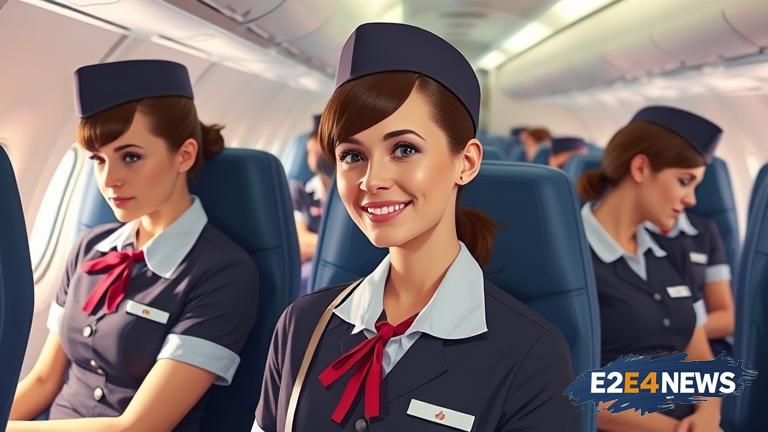As we all know, being a flight attendant is not just about serving drinks and snacks on a plane. It’s a highly demanding job that requires a unique set of skills, knowledge, and training. From handling emergency situations to providing excellent customer service, cabin crew members are taught a wide range of skills to ensure a safe and comfortable flight experience for all passengers. One of the most surprising things that cabin crew are taught is how to deal with difficult passengers. This includes de-escalation techniques, conflict resolution, and even self-defense methods. They are also trained to recognize and respond to medical emergencies, such as heart attacks, strokes, and allergic reactions. In addition to these critical skills, flight attendants are also taught how to evacuate a plane in emergency situations, including the use of emergency slides and exits. They are also trained to operate emergency equipment, such as oxygen masks, fire extinguishers, and first aid kits. Furthermore, cabin crew members are taught how to handle situations involving unruly passengers, including those who are intoxicated or violent. They are also trained to recognize and respond to potential security threats, such as suspicious behavior or unattended luggage. Another important aspect of flight attendant training is learning how to communicate effectively with passengers, including those who may have disabilities or language barriers. This includes learning basic phrases in different languages, as well as how to use visual aids and other communication tools. Flight attendants are also taught how to work effectively as a team, including how to coordinate with other crew members and respond to emergency situations. They are also trained to maintain a clean and safe cabin environment, including how to handle food and trash, and how to prevent the spread of illnesses. In terms of specific skills, flight attendants are taught how to perform CPR, use a defibrillator, and administer basic first aid. They are also trained to recognize and respond to signs of anxiety, depression, and other mental health issues. Additionally, cabin crew members are taught how to handle situations involving children and infants, including how to install child safety seats and provide care for newborns. They are also trained to recognize and respond to signs of fatigue, stress, and other health issues that may affect passengers during flight. Overall, the training that cabin crew members receive is comprehensive and rigorous, and is designed to prepare them for a wide range of situations that may arise during flight. By learning about the surprising things that flight attendants are taught, we can gain a greater appreciation for the critical role that they play in ensuring our safety and comfort during air travel. Whether you’re a frequent flyer or just an occasional traveler, it’s interesting to learn about the skills and knowledge that cabin crew members possess. From emergency response to customer service, the training that flight attendants receive is truly impressive. So next time you’re on a plane, be sure to thank your flight attendants for all that they do to keep you safe and comfortable during your journey. With their expertise and dedication, you can rest assured that you’re in good hands. In conclusion, the training that cabin crew members receive is essential to ensuring a safe and enjoyable flight experience for all passengers. By learning about the surprising things that flight attendants are taught, we can gain a greater appreciation for the important role that they play in the aviation industry.
